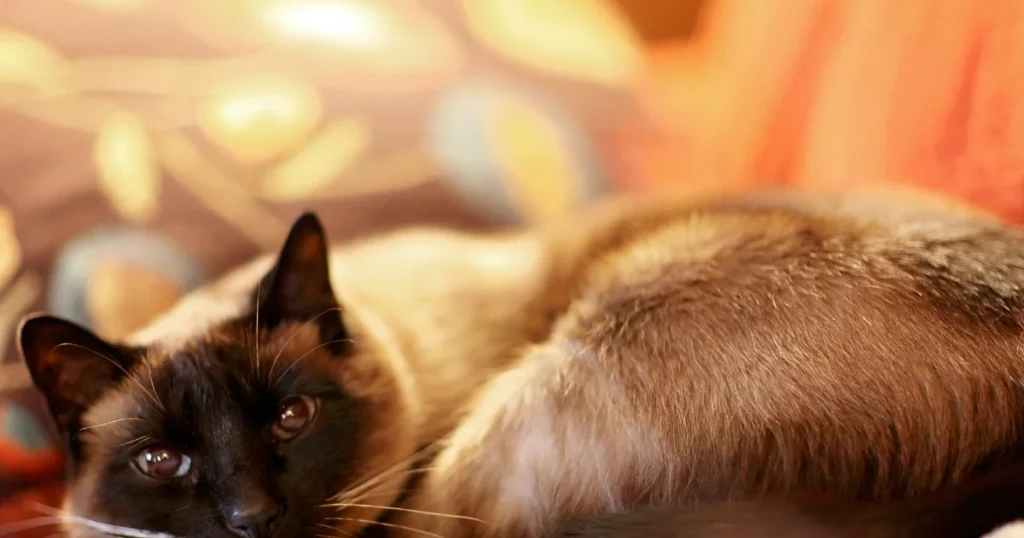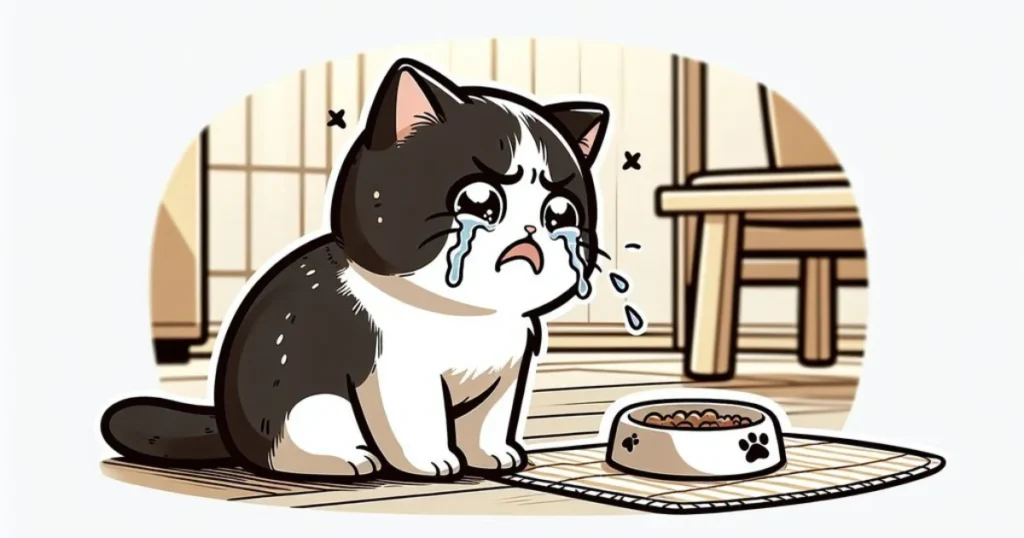Cats are known for their independent and mysterious nature. However, if you notice your cat crying after eating, it may be a cause for concern. While occasional crying or meowing is normal, persistent crying after eating could indicate an underlying issue. In this article, we will explore some possible reasons why your cat may be crying after eating and provide key takeaways to help you understand and address this behavior.
Key Takeaways
- Food allergies or sensitivities can cause discomfort and crying after eating.
- Dental issues, such as tooth decay or gum disease, may make eating painful for your cat.
- Gastrointestinal problems, such as an upset stomach or inflammatory bowel disease, can lead to crying after eating.
- Emotional distress, such as anxiety or stress, can manifest as crying after eating.
- If your cat is crying after eating, it is important to consult with a veterinarian to determine the underlying cause and provide appropriate treatment.
Possible Reasons for Cat Crying After Eating
Food Allergies or Sensitivities
Food Allergies or Sensitivities
Some cats may experience crying after eating due to food allergies or sensitivities. Certain ingredients in their food can trigger an allergic reaction or cause digestive discomfort. If your cat is crying after eating, it may be helpful to consult with a veterinarian to determine if a food allergy or sensitivity is the underlying cause.
- Keep an eye out for common allergens such as wheat, soy, dairy, and artificial additives in your cat’s food.
- Consider switching to a hypoallergenic or limited-ingredient diet to see if it alleviates the crying.
Tip: Gradually introduce any new food to your cat’s diet to minimize the risk of an adverse reaction.
Dental Issues
Gastrointestinal Problems
Emotional Distress

Dental Issues
Cats may cry after eating due to dental issues. Dental problems such as tooth decay, gum disease, or inflammation can cause discomfort and pain while eating. If your cat has sensitive teeth or oral ulcers, they may also cry after meals. It is important to monitor your cat’s dental health and seek veterinary care if you notice any signs of dental problems.
- Dental problems can make it difficult for cats to chew their food properly.
- Cats with dental issues may prefer softer or wet food.
- Regular dental check-ups and cleanings can help prevent dental problems in cats.
Tip: Provide your cat with dental-friendly toys or treats that promote dental health and help keep their teeth clean.
Gastrointestinal Problems
Gastrointestinal problems can also be a possible reason for your cat crying after eating. Digestive issues such as gastritis or inflammatory bowel disease can cause discomfort and pain in your cat’s stomach. This can lead to crying or vocalization after eating.
If your cat has gastrointestinal problems, you may also notice other symptoms such as vomiting, diarrhea, or weight loss. It’s important to consult with your veterinarian to determine the underlying cause and develop a treatment plan.
In some cases, a change in diet may be necessary to alleviate gastrointestinal issues. Your veterinarian may recommend a specialized diet that is easier to digest or prescribe medication to manage the symptoms.
Remember, it’s crucial to seek professional veterinary advice to ensure the health and well-being of your cat.
Emotional Distress
Cats can experience emotional distress, which may cause them to cry after eating. Changes in their environment, such as moving to a new home or the introduction of a new pet, can be stressful for cats and lead to emotional distress. Additionally, separation anxiety can also cause cats to cry after eating. If a cat becomes anxious or fearful when left alone, they may exhibit this behavior. It’s important to provide a safe and comfortable environment for your cat to help alleviate emotional distress.
- Ensure your cat has a quiet and secluded space where they can retreat when feeling stressed.
- Provide plenty of mental and physical stimulation through playtime and interactive toys.
- Consider using pheromone diffusers or calming sprays to create a soothing atmosphere.
Remember, cats are sensitive creatures and can easily become stressed. By addressing their emotional needs, you can help reduce their crying after eating.

Conclusion
In conclusion, there can be several reasons why a cat may cry after eating. Food allergies or sensitivities, dental issues, gastrointestinal problems, and emotional distress are all potential factors that can contribute to this behavior. Cat owners need to observe their cats closely and consult with a veterinarian if they notice any unusual behavior or symptoms. Providing a balanced and appropriate diet, regular dental care and a stress-free environment can help alleviate this issue. Remember, a healthy and happy cat is a joy to have as a companion.
Frequently Asked Questions
Why does my cat cry after eating?
There can be several reasons why a cat cries after eating, including food allergies or sensitivities, dental issues, gastrointestinal problems, or emotional distress.
How can I determine if my cat has food allergies or sensitivities?
If your cat cries after eating and exhibits other symptoms such as itching, vomiting, or diarrhea, it could be a sign of food allergies or sensitivities. Consult with your veterinarian for proper diagnosis and treatment.
What dental issues can cause my cat to cry after eating?
Dental issues such as tooth decay, gum disease, or mouth ulcers can cause pain and discomfort while eating, leading to crying or vocalization. Regular dental check-ups and proper oral hygiene can help prevent these issues.
Are there any gastrointestinal problems that can make my cat cry after eating?
Gastrointestinal problems such as gastritis, pancreatitis, or inflammatory bowel disease can cause abdominal pain or discomfort, leading to crying after eating. It is important to consult with a veterinarian for proper diagnosis and treatment.
Can emotional distress cause my cat to cry after eating?
Yes, cats can experience emotional distress, which can manifest as crying or vocalization after eating. Changes in the environment, separation anxiety, or stress can contribute to this behavior. Providing a calm and secure environment can help alleviate emotional distress.
What should I do if my cat cries after eating?
If your cat cries after eating and you suspect it is due to a medical issue, it is important to consult with a veterinarian for a proper diagnosis. They can recommend appropriate treatment or dietary changes to address the underlying cause.
